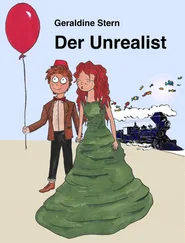“I am interested in money, of course sir; it is necessary for a young man in my circumstances to be so. But I trust you will not think me irresponsible if I tell you I am more interested in laying up the riches of the mind.”
“Well said, young Mr.—March, was it? Well, as it happens I have business elsewhere this day, so why don’t you make yourself free of the library. Do us the honor of taking dinner here, and you can tell me then what volume you would consider in barter for the Lavater.”
“Sir, I could not impose upon you—”
“Mr. March, you would be doing me a great kindness. My household is reduced, at present. My son is away with my manager on business. Solitude is no friend to science. You must know that we in the South suffer from a certain malnourishment of the mind: we value the art of conversation over literary pursuits, so that when we gather together it is all for gallantries and pleasure parties. There is much to be said for our agrarian way of life. But sometimes I envy your bustling Northern cities, where men of genius are thrown together thick as bees, and the honey of intellectual accomplishment is produced. I would like to talk about books with you; do be kind enough to spare me an evening.”
“Mr. Clement, sir, it would be my very great pleasure.”
“Very good, then. I shall look forward.” He paused at the door, and turned. “Grace mentioned you had some notions for children. Whatever you have in picture puzzles or games for the illiterate, I will take—presents for the slaves’ little ones, you know. Just let Grace know what compensation you think fair.”
I realize that lust stands high in the list of deadly sins. And yet lust—the tightening throat, the flushed cheeks, the raging appetite—is the only word accurate to describe the sensation I felt that morning, as the painted door closed and I was left with the liberty of all those books. By afternoon, I could say I was ready to love Mr. Clement. For to know a man’s library is, in some measure, to know his mind. And this mind was noble in its reach, wide in its interests, discerning in its tastes.
Grace knocked on the door at some point and brought me a cold collation on a tray, but even had it not been meat I would not have paused to eat it. I did not want to take even a moment from my perusal of the books. About an hour before dinnertime, she came again, clucked at the uneaten food, and offered to show me to my quarters—I was to use the absent estate manager’s cottage. There I attempted to make myself presentable within the very severe limits of my wardrobe. Not for the first time since I set out, I was mortified to have to present myself at a civilized table clad in a suit of linen, harvested from our own flax fields, spun and sewn by my mother. I resolved that I would reserve some part of my profits for a decent suit from a New York tailor when I returned north.
Mr. Clement was waiting in the drawing room when I presented myself. He was alone. I had hoped to meet the lady of the house. My face must have registered surprise.
“Mrs. Clement bids you welcome and sends her apologies. She is not well, Mr. March: she does not dine down. However, she said she would like very much to make your acquaintance tomorrow, if you would be kind enough to visit her. She would like to hear your impressions of Virginia, as they have been informed by your travels.”
I have never been in the habit of consuming alcohol, but out of politeness I took the glass of champagne Mr. Clement held out to me. My mood was elevated enough by the joys of my day, and by the time we sat down in the handsome dining room, the bitter little bubbles seemed to be bearing me aloft. A Negro glided in with a silver salver, upon which stood a slab of sanguinary beef swaddled in a blanket of glistening yellow fat. The drippings from this joint had contaminated the potatoes so as to render them inedible to me. Next, he proffered a dish of greens, and I accepted a liberal serving. But as I brought a forkful to my mouth I caught the stench of pork grease and had to lay it down.
Still, I barely noticed my hunger, engrossed as I was in the conversation. I cannot say now all the topics upon which we alighted, only that we moved from the ancient world to the modern, from Rome’s Cato to our revolutionary Catos, from Kant on apperception to Coleridge on Kant, to Coleridge’s unacknowledged debts to Schelling. Clement led the way and I followed, the wine on my empty stomach providing volatile fuel for my flight. I hardly noted the translation from dining room to drawing room and do not know what time it was when Clement finally drew a hand, on which a handsome signet ring gleamed, across a brow which I suddenly noted was gray with fatigue.
“You must forgive me, but I am not accustomed to attending to estate matters, as I had to do today. Usually my son and the manager between them handle the business of the farm, deferring to me on only the most consequential issues. Since they are away, I must concern myself, and as a result I find myself weary. But I don’t know when I’ve enjoyed a young man’s company so. You have a supple mind, Mr. March. It’s clear that you have read widely for such a youth, whose circumstances, forgive me, could not have made this easy. If your plans allow for it, you are welcome here for as long as you would care to remain.’’
There was a saying among the Connecticut peddlers: beware the hospitality of the planters. Many a young man had been turned from the road and its profits by just such an offer as was now extended to me, and had ended his journey in idle dissipation. And yet I was hungry for knowledge in those days, and the prospect of spending more time exploring the library and the intellect of Mr. Clement was more than I could withstand.
The next day, I paid a call upon Mrs. Clement. I found her reclining on a chaise in a sunlit sitting room, a, huge-eyed beauty clad in a froth of white lace and broderie anglaise. Grace sat in a highbacked chair at her side, reading poetry, with a surprising delicacy of expression. “Thank you, Grace, my dear. That was lovely, as usual. Why don’t you take a little break now, while this fine-looking young man is here to amuse me?” Hearing Mrs. Clement speak, I realized that Grace’s voice had been schooled in imitation of her mistress, and yet the slave, having a naturally lower register, had the richer and more resonant timbre.
Mrs. Clement held out a hand to greet me. The touch of her skin—hot, dry, papery—was a shock. I did my best to hide my recoil. “My husband said you were a very conversible young man, but he did not mention that you were so handsome. Quite ‘the golden lad’ the poet speaks of, indeed. Why, you must have the belles of Virginia casting themselves at your feet!” She tittered girlishly. I coughed with embarrassment. Grace shot me a cool look as she slipped a silk bookmark into the slim volume and slid from the room. Mrs. Clement saw my eyes following her silent exit. She sighed. “Sometimes, I believe I am more fond of that girl than of my own daughter. Do you think that very wicked of me, Mr. March?” She did not expect an answer, and I gave none. “One’s son is so much in the world, and a daughter marries young and leaves. My daughter was married last year, and only fifteen. Can you imagine? Such a little girl, to be mistress of her own great estate. Though I warned her. Oh yes, I tried. But she stamped her dainty foot and would accept the young gentleman’s proposal, for all her father and I counseled her to wait. The young are willful, Mr. March, as you should know, being so very young yourself. Why, you can’t be much more than a boy…”
“I shall be nineteen in November, ma’am.”
“You see? A boy, as I said…but a very well-grown boy…” The large, dark eyes appraised me. “What are you? Six feet?”
Читать дальше












